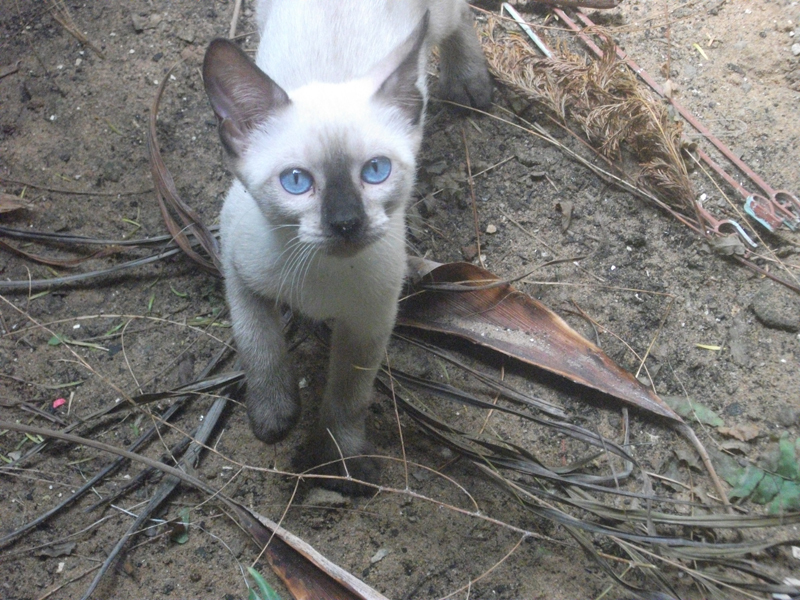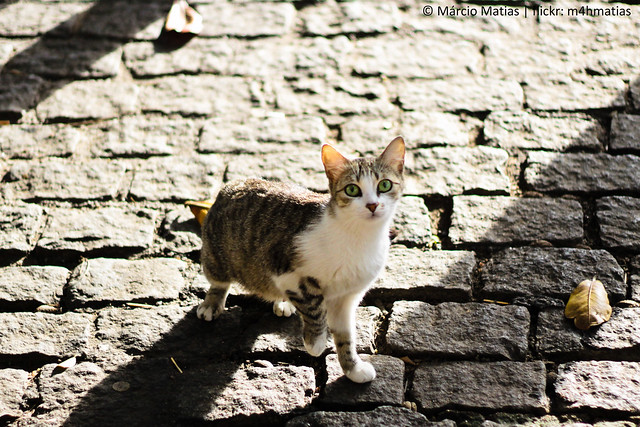Install the app
How to install the app on iOS
Follow along with the video below to see how to install our site as a web app on your home screen.
Note: This feature may not be available in some browsers.
Latest on MJJC
You are using an out of date browser. It may not display this or other websites correctly.
You should upgrade or use an alternative browser.
You should upgrade or use an alternative browser.
To Catlovers
- Thread starter MIST
- Start date
Ashtanga
Proud Member
Re: to catlovers

:wub:

:wub:
Ashtanga
Proud Member
Re: to catlovers

:wub:

:wub:
Ashtanga
Proud Member
Re: to catlovers









:wub:









:wub:
Ashtanga
Proud Member
Re: to catlovers
 :wub:
:wub:

MIST
Proud Member
- Joined
- Jul 25, 2011
- Messages
- 5,351
- Points
- 83
Los Angeles Magazine – recognizes FixNation as the “Best of LA”
Open Letter
To all of the donors, clients, employees, volunteers, sponsors, friends and supporters of FixNation:
Each year, Los Angeles Magazine searches out to find a limited number of special companies and organizations that deserve to be honored and recognized as the “Best of LA” in categories representing the wide variety of goods and services that make up the rich texture of Los Angeles as a community. This year, we are proud to say that FixNation – your FixNation – has been named the Best in our category – stray cat (spay-neuter) clinic.
The cover and inside piece on this accolade, the latter featuring a photo of “Super Cat”, are on the pages which follow1. Karn and I were invited to and attended the recognition party LA Magazine hosted last night at the Hollywood Roosevelt Hotel, where we met many other honorees and the publication’s key executives involved in this years BOLA. It was our honor to do so, not for the personal recognition it provided, but rather the opportunity it provides to shine the light on our mission – one that all of you share, and do so much to bring us closer every day to the end of feline homelessness and the dawn of humane enlightenment in our society.
Truly, you are the ones who deserve this award and recognition, so it is my genuine pleasure to share it with you in this spirit…
Sincerely,
Mark Dodge
<iframe width="640" height="360" src="http://www.youtube.com/embed/HgGq17J6FEA" frameborder="0" allowfullscreen></iframe>
http://fixnation.org/2011/07/best-of-la/
<iframe width="640" height="360" src="http://www.youtube.com/embed/ng--R7Ertfk" frameborder="0" allowfullscreen></iframe>
I wish we had a veterinarian clinic where you can go and get homeless cat fixed for free.
It has just been another case where a catshelter had to take the cats from a person who got it out of control.
This person loved cats and wanted to help but didn´t spay or neuter them and they became to many.
Open Letter
To all of the donors, clients, employees, volunteers, sponsors, friends and supporters of FixNation:
Each year, Los Angeles Magazine searches out to find a limited number of special companies and organizations that deserve to be honored and recognized as the “Best of LA” in categories representing the wide variety of goods and services that make up the rich texture of Los Angeles as a community. This year, we are proud to say that FixNation – your FixNation – has been named the Best in our category – stray cat (spay-neuter) clinic.
The cover and inside piece on this accolade, the latter featuring a photo of “Super Cat”, are on the pages which follow1. Karn and I were invited to and attended the recognition party LA Magazine hosted last night at the Hollywood Roosevelt Hotel, where we met many other honorees and the publication’s key executives involved in this years BOLA. It was our honor to do so, not for the personal recognition it provided, but rather the opportunity it provides to shine the light on our mission – one that all of you share, and do so much to bring us closer every day to the end of feline homelessness and the dawn of humane enlightenment in our society.
Truly, you are the ones who deserve this award and recognition, so it is my genuine pleasure to share it with you in this spirit…
Sincerely,
Mark Dodge
<iframe width="640" height="360" src="http://www.youtube.com/embed/HgGq17J6FEA" frameborder="0" allowfullscreen></iframe>
http://fixnation.org/2011/07/best-of-la/
<iframe width="640" height="360" src="http://www.youtube.com/embed/ng--R7Ertfk" frameborder="0" allowfullscreen></iframe>
I wish we had a veterinarian clinic where you can go and get homeless cat fixed for free.
It has just been another case where a catshelter had to take the cats from a person who got it out of control.
This person loved cats and wanted to help but didn´t spay or neuter them and they became to many.
Ashtanga
Proud Member
Re: to catlovers
No. Some are from friends and others are the NGO I participate that cares for abandoned animals. But I have 4 cats. :heart:
^^Are those your kitties, Ash?
No. Some are from friends and others are the NGO I participate that cares for abandoned animals. But I have 4 cats. :heart:
Ashtanga
Proud Member
Re: to catlovers


:wub:


:wub:
MIST
Proud Member
- Joined
- Jul 25, 2011
- Messages
- 5,351
- Points
- 83
Re: to catlovers
I believe cats to be spirits come to earth. A cat, I am sure, could walk on a cloud without coming through. - Jules Verne


:wub:
I believe cats to be spirits come to earth. A cat, I am sure, could walk on a cloud without coming through. - Jules Verne
Ashtanga
Proud Member
Re: to catlovers
These brothers were abandoned when they were babies ... and now we are looking for an owner to them, who loves them very much and respect them :heart::
... and now we are looking for an owner to them, who loves them very much and respect them :heart::
Buffy

Bino

All

Mococa

:wub:
These brothers were abandoned when they were babies
Buffy

Bino

All

Mococa

:wub:
MIST
Proud Member
- Joined
- Jul 25, 2011
- Messages
- 5,351
- Points
- 83
Ashtanga,
I hope they all find homes with lots of love.
I just found the story of Alera, the start wasn´t good but in the end he -or she?-was very much loved
<iframe width="480" height="360" src="http://www.youtube.com/embed/N4nyVf9Jls4" frameborder="0" allowfullscreen></iframe>
Her rescuer is a true hero.
I hope they all find homes with lots of love.
I just found the story of Alera, the start wasn´t good but in the end he -or she?-was very much loved
<iframe width="480" height="360" src="http://www.youtube.com/embed/N4nyVf9Jls4" frameborder="0" allowfullscreen></iframe>
Her rescuer is a true hero.
Mr. Goodnite
Proud Member
- Joined
- Jan 11, 2012
- Messages
- 13
- Points
- 1
Re: to catlovers
My kitty is in my lap right now. She misbehaves when I leave the room sometimes. Anyone have any advice?
My kitty is in my lap right now. She misbehaves when I leave the room sometimes. Anyone have any advice?
Ashtanga
Proud Member
Re: to catlovers
Thanks! We are praying for it.
We are praying for it.  ray: :heart:
ray: :heart:
Ashtanga,
I hope they all find homes with lots of love.
Thanks!
Ashtanga
Proud Member
Re: to catlovers
 :wub:
:wub:

bouee
Proud Member
- Joined
- Aug 22, 2009
- Messages
- 2,341
- Points
- 0
Re: to catlovers
what does she do when you leave the room ?My kitty is in my lap right now. She misbehaves when I leave the room sometimes. Anyone have any advice?
Ashtanga
Proud Member
Re: to catlovers



:wub:



:wub:
MIST
Proud Member
- Joined
- Jul 25, 2011
- Messages
- 5,351
- Points
- 83
I wish all freezing cats had access to a heating pad.There are microwave heatpad heated in minutes and lasts up to 10 hours,that´s something to put in cat huts for colonycats in colder colder areas.It would help from keeping the water freezing to ice too.
<iframe width="640" height="360" src="http://www.youtube.com/embed/HB05Q11WabA" frameborder="0" allowfullscreen></iframe>
<iframe width="640" height="360" src="http://www.youtube.com/embed/HB05Q11WabA" frameborder="0" allowfullscreen></iframe>
Ashtanga
Proud Member
Re: to catlovers

:girl_sigh:













:wub:

:girl_sigh:













:wub:
MIST
Proud Member
- Joined
- Jul 25, 2011
- Messages
- 5,351
- Points
- 83
Early-Age Spay/Neuter
By Paula Kislak, DVM
Early-Age Spay/Neuter
Studies show that gonadectomy (removal of the ovaries or testicles in spay or neuter surgery) in puppies and kittens can be safely performed before puberty without medical or behavioral concerns.
Gonadectomy, one of the most ancient surgical procedures performed on domestic animals, dates from at least 284 B.C. Until the end of the last century, little scientific inquiry was made into the optimal age for this procedure, and postpubertal gonadectomy (performing surgery at or after the age of 6 months) remained the norm.1 In 1974, however, the Southern Oregon Humane Society recognized that many animals in their shelter were the offspring of puppies and kittens adopted from them in the previous six months. Subsequently, they began performing early-age sterilization on kittens and puppies as young as 6 weeks old.
Armed with growing information about the benefits of this surgery, in 1975 the Humane Society of the United States issued a policy stating "No animal should be adopted from any shelter without being spayed or castrated." Many shelters subsequently adopted an early-age sterilization policy, and many, including all shelters in California, are now mandated by law to do so prior to adoption. In 1993, the American Veterinary Medical Association approved a resolution supporting early-age sterilization surgery.
The push to sterilize puppies and kittens at an early age immediately stirred dissent within the veterinary community. To address these concerns, numerous studies have evaluated the safety of the surgery. Anecdotal results from the Southern Oregon Humane Society were published in 1985, and they indicated approximately the same incidence of physical and behavioral complications for both the prepubertal and postpubertal gonadectomized animals. Building on this, Leo Lieberman, DVM, studied early-age sterilization programs at three shelters. Over a two-year period at the Florida SPCA, 1,600 surgeries were performed; 8,000 were performed over a seven-year period at the Southern Oregon Humane Society, and more than 90,000 were performed over an eight-year period at the Vancouver SPCA. Dr. Lieberman found no significantly increased complication rate.
A well-designed study was done at the University of Florida in 1991 on male and female canine littermates separated and surgically sterilized at 7 weeks and 7 months of age. When the parameters were measured at maturity, no clinically significant differences were found between the groups.3 In another study, seven litters of kittens were divided into three groups sterilized at 7 weeks, 7 months and 12 months. The results, again, displayed no significant differences among the three groups.4 Two articles were published in 1991 that detailed surgical and anesthetic considerations for 96 young kittens. They both concluded “there were no important anesthetic complications or complications during or after surgery.”
And yet, some veterinarians remained skeptical about potential long-term effects of early-age sterilization. One study published in the January 15, 2001, edition of the Journal of the American Veterinary Medical Association addresses the long-term results and complications of gonadectomy performed at an early age versus the traditional age in dogs. The research studied 269 dogs from animal shelters. The results showed prepubertal gonadectomy did not result in an increased incident of behavioral problems or problems associated with any body system, compared with traditional-age gonadectomy, during a median follow-up period of 48 months. The article concludes that early-age sterilization surgery can be safely performed in dogs without concern for increased incidence of physical or behavioral problems.7
Two companion articles published in the Journal of the AVMA in 2004 studied 1,842 dogs and 1,600 cats to evaluate early-age gonadectomy.8,9 They conclude that the benefits outweighed the risks. Both studies maintain that shelters and clients can safely be advised to sterilize their animals prior to the traditional 6 to 8 months of age, with the recommendation that female dogs be at least 3 months of age.
John Hamil, DVM, of Laguna Beach, California, has been a strong advocate of early-age surgery, and he states that "The surgery is faster and technically much easier than it is in older patients. The recovery of young patients from anesthesia is remarkably rapid and complete."10,11 Private practitioners should consider adopting an early-age sterilization policy with their kitten and puppy packages at the end of the vaccination series and prior to puberty.
This places veterinarians in a leadership role to help end the staggering pet overpopulation problem by preventing unexpected pregnancies. Additionally, veterinarians are further fulfilling their responsibilities to their patients by ensuring a dramatic reduction in the incidence of mammary cancer and prostate disease later in life, which is a well-documented benefit of early sterilization. The surgery also is effective in reducing aggression, spraying, roaming and other behaviors often associated with late-sterilized animals and frequently resulting in abandonment and death.
For shelters, sterilization before adoption allows them to release animals without the burdensome follow-up on compliance and other tasks associated with deposits and refunds. In fact, as shelters have begun performing early-age sterilization, they've found the number of cats and dogs turned into the shelter has declined dramatically. Rescue groups and feral cat caregivers can also use this strategy to diminish the potential for careless, avaricious, and irresponsible breeding which results in the wholesale slaughter of over 5 million dogs and cats each year.
Many state veterinary medical associations now endorse and thereby validate the safety, efficacy, and benefits of early-age sterilization. These include the states of California, Massachusetts, Nevada, Oregon, Rhode Island, and Wisconsin. The American Animal Hospital Association, the American Veterinary Medical Association, and the Association of Veterinarians for Animal Rights endorse it, as well as numerous humane organizations, including the Humane Society of the United States and the American Humane Association. In doing so, they provide us with the opportunity and encouragement to use early-age sterilization for improving our patients’ quality of life, as well as addressing the companion animal crisis that affects our communities on many levels.
http://chai-online.org/en/companion/overpopulation_sn_early.htm
By Paula Kislak, DVM
Early-Age Spay/Neuter
Studies show that gonadectomy (removal of the ovaries or testicles in spay or neuter surgery) in puppies and kittens can be safely performed before puberty without medical or behavioral concerns.
Gonadectomy, one of the most ancient surgical procedures performed on domestic animals, dates from at least 284 B.C. Until the end of the last century, little scientific inquiry was made into the optimal age for this procedure, and postpubertal gonadectomy (performing surgery at or after the age of 6 months) remained the norm.1 In 1974, however, the Southern Oregon Humane Society recognized that many animals in their shelter were the offspring of puppies and kittens adopted from them in the previous six months. Subsequently, they began performing early-age sterilization on kittens and puppies as young as 6 weeks old.
Armed with growing information about the benefits of this surgery, in 1975 the Humane Society of the United States issued a policy stating "No animal should be adopted from any shelter without being spayed or castrated." Many shelters subsequently adopted an early-age sterilization policy, and many, including all shelters in California, are now mandated by law to do so prior to adoption. In 1993, the American Veterinary Medical Association approved a resolution supporting early-age sterilization surgery.
The push to sterilize puppies and kittens at an early age immediately stirred dissent within the veterinary community. To address these concerns, numerous studies have evaluated the safety of the surgery. Anecdotal results from the Southern Oregon Humane Society were published in 1985, and they indicated approximately the same incidence of physical and behavioral complications for both the prepubertal and postpubertal gonadectomized animals. Building on this, Leo Lieberman, DVM, studied early-age sterilization programs at three shelters. Over a two-year period at the Florida SPCA, 1,600 surgeries were performed; 8,000 were performed over a seven-year period at the Southern Oregon Humane Society, and more than 90,000 were performed over an eight-year period at the Vancouver SPCA. Dr. Lieberman found no significantly increased complication rate.
A well-designed study was done at the University of Florida in 1991 on male and female canine littermates separated and surgically sterilized at 7 weeks and 7 months of age. When the parameters were measured at maturity, no clinically significant differences were found between the groups.3 In another study, seven litters of kittens were divided into three groups sterilized at 7 weeks, 7 months and 12 months. The results, again, displayed no significant differences among the three groups.4 Two articles were published in 1991 that detailed surgical and anesthetic considerations for 96 young kittens. They both concluded “there were no important anesthetic complications or complications during or after surgery.”
And yet, some veterinarians remained skeptical about potential long-term effects of early-age sterilization. One study published in the January 15, 2001, edition of the Journal of the American Veterinary Medical Association addresses the long-term results and complications of gonadectomy performed at an early age versus the traditional age in dogs. The research studied 269 dogs from animal shelters. The results showed prepubertal gonadectomy did not result in an increased incident of behavioral problems or problems associated with any body system, compared with traditional-age gonadectomy, during a median follow-up period of 48 months. The article concludes that early-age sterilization surgery can be safely performed in dogs without concern for increased incidence of physical or behavioral problems.7
Two companion articles published in the Journal of the AVMA in 2004 studied 1,842 dogs and 1,600 cats to evaluate early-age gonadectomy.8,9 They conclude that the benefits outweighed the risks. Both studies maintain that shelters and clients can safely be advised to sterilize their animals prior to the traditional 6 to 8 months of age, with the recommendation that female dogs be at least 3 months of age.
John Hamil, DVM, of Laguna Beach, California, has been a strong advocate of early-age surgery, and he states that "The surgery is faster and technically much easier than it is in older patients. The recovery of young patients from anesthesia is remarkably rapid and complete."10,11 Private practitioners should consider adopting an early-age sterilization policy with their kitten and puppy packages at the end of the vaccination series and prior to puberty.
This places veterinarians in a leadership role to help end the staggering pet overpopulation problem by preventing unexpected pregnancies. Additionally, veterinarians are further fulfilling their responsibilities to their patients by ensuring a dramatic reduction in the incidence of mammary cancer and prostate disease later in life, which is a well-documented benefit of early sterilization. The surgery also is effective in reducing aggression, spraying, roaming and other behaviors often associated with late-sterilized animals and frequently resulting in abandonment and death.
For shelters, sterilization before adoption allows them to release animals without the burdensome follow-up on compliance and other tasks associated with deposits and refunds. In fact, as shelters have begun performing early-age sterilization, they've found the number of cats and dogs turned into the shelter has declined dramatically. Rescue groups and feral cat caregivers can also use this strategy to diminish the potential for careless, avaricious, and irresponsible breeding which results in the wholesale slaughter of over 5 million dogs and cats each year.
Many state veterinary medical associations now endorse and thereby validate the safety, efficacy, and benefits of early-age sterilization. These include the states of California, Massachusetts, Nevada, Oregon, Rhode Island, and Wisconsin. The American Animal Hospital Association, the American Veterinary Medical Association, and the Association of Veterinarians for Animal Rights endorse it, as well as numerous humane organizations, including the Humane Society of the United States and the American Humane Association. In doing so, they provide us with the opportunity and encouragement to use early-age sterilization for improving our patients’ quality of life, as well as addressing the companion animal crisis that affects our communities on many levels.
http://chai-online.org/en/companion/overpopulation_sn_early.htm
Ashtanga
Proud Member
Re: to catlovers
[youtube]wf_IIbT8HGk&feature[/youtube]
http://www.youtube.com/watch?v=wf_IIbT8HGk&feature=player_embedded

[youtube]wf_IIbT8HGk&feature[/youtube]
http://www.youtube.com/watch?v=wf_IIbT8HGk&feature=player_embedded
Ashtanga
Proud Member
Re: to catlovers





:wub:





:wub:
MIST
Proud Member
- Joined
- Jul 25, 2011
- Messages
- 5,351
- Points
- 83
<iframe width="560" height="315" src="http://www.youtube.com/embed/dUIrY6zyrew" frameborder="0" allowfullscreen></iframe>
"Caroline´s Kids is a sanctuary for life for old and special needs felines. Although we do adoptions on an appointment basis based on our availability, we remain a sanctuary with the needs of the resident cats coming first."
http://carolines-kids.org/
"Caroline´s Kids is a sanctuary for life for old and special needs felines. Although we do adoptions on an appointment basis based on our availability, we remain a sanctuary with the needs of the resident cats coming first."
http://carolines-kids.org/
